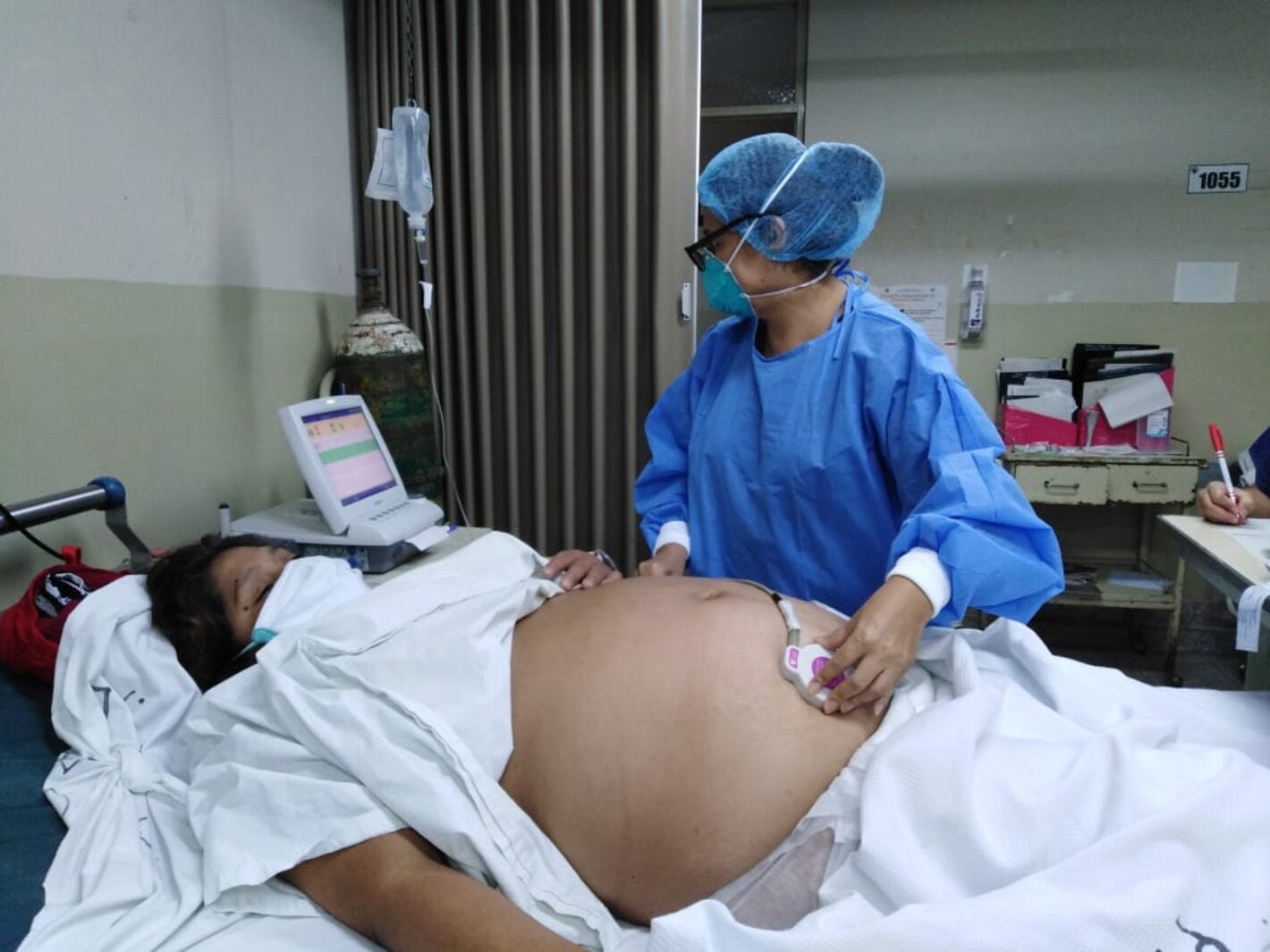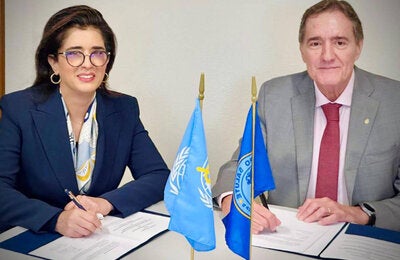
Montevideo 16/04/2020 (CLAP)— Should positive COVID 19 pregnant women be attended at home if they are in home quarantine? Should we set up a delivery room in the isolation rooms? Is it recommended for COVID 19 suspected or confirmed mothers to continue breastfeeding? Can the infection be transmitted to the baby? These questions set the stage for the webinar on “Maternal and Perinatal Care during the COVID-19 Pandemic Response”.
The Webinar was the result of the collaboration between the Latinamerican Center for Perinatology, Woman and Reproductive Health Unit (CLAP) of PAHO and the PAHO/WHO Office for Barbados and the Eastern Caribbean Countries (ECC), as part of their continuous support to Member States in the ECC
The web meeting convened more than 70 participants, including nurses, midwives, neonatologists and obstetricians from the Eastern Caribbean Region, to discuss the evidence available regarding COVID 19 and its impact on pregnant women and newborns.
The webinar focussed on WHO recommendations related to pregnant women and newborns, including the interim Guideline: Clinical management of severe acute respiratory infection (SARI) when COVID 19 disease is suspected.
“We have to consider asymptomatic patients: pregnant women or recently pregnant women can be asymptomatic (as well as the general population). We have to monitor that”, said Dr. Rodolfo Gómez, Regional Advisor on Sexual and Reproductive Health at CLAP. Dr. Gómez pointed out that all pregnant women, including those with confirmed diagnosis or suspected COVID-19, even those who must maintain quarantine conditions, have the right to quality care before, during and after delivery. This includes antenatal, newborn, postnatal care, violence prevention, and mental health care.
“So far, there is no evidence that pregnant women are at increased risk of serious illness or fetal compromise as it happened in flu pandemic in 2009”, said Dr. Bremen De Mucio, Regional Advisor on Maternal Health at CLAP.
One of the topics highlighted during the webinar was the importance of health workers to take the appropriate precautions, to use personal protective equipment in order to reduce the risk of infection.
One of the participants asked about the minimum PPE required for delivering a positive or suspected positive pregnant woman.
“If you have a suspected case of COVID-19 you need to manage it as positive. You must prepare everything: the health team must work in isolation, set the minimum number of staff in the delivery room (2 or 3 inside the room and another member of the team outside to avoid in and out); provide a mask N95 for the pregnant woman and equipment for each member of the team including and an N95 mask, goggles, face shields, waterproof robe, and surgical boots and double pair of gloves. This is the minimum. If you reduce this protective measures you run the risk of having a member of the team getting infected and needing to be quarantined for the next 14 days”, said De Mucio.
Another topic discussed at the seminar was the routine antenatal care. At present it is under discussion the number of antenatal visits in an asymptomatic pregnant woman and without suspected SARS CoV-2 infection. It is recommended that the pregnant woman communicates by phone or electronically with her provider, who must guarantee the necessary social distancing conditions to avoid crowding of women in routine prenatal care.
Home birth
“We know that home births appear as an option for many women in our Region but WHO and PAHO would not recommend having a home birth in order to avoid risks to be infected by COVID-19. Home births have their own risk probably higher than delivering a baby in an institution”, emphasized Gómez.
In response to the question, if it would be reasonable to minimize the time spent on the ward, by the Labour coaches, and focus only on the active phase of Labour, De Mucio answered “The recommendation is to reduce the number of days that the mother and her newborn is at the hospital and reduce the number of visitors. This is not only to protect the mother and the newborn but also to protect all the staff at the health service and visitors”.
Breastfeeding and infant feeding
“At present there is no evidence regarding vertical transmission of the mother to the newborn during pregnancy and during delivery. Also, there is no evidence of the presence of the virus in breast milk. However, we have to stress that there is preliminary evidence based on the cases reported and we need to keep a track on the evidence in order to check if it changes”, said Pablo Durán, Regional Advisor on Perinatal Health at CLAP.
It is important to provide adequate care in order to avoid infection of the newborn horizontally within the institution, it is important to sustain the best way of feeding the newborn and not necessarily suspend breastfeeding. It is also important to stress at the time of discharge, the recommendation for the family when they go home, said the expert. H explained that it is essential to provide interdisciplinary care with the obstetrician, perinatologist, neonatologist, infectious disease, laboratory and intensive care specialists to women and newborns with suspected or confirmed SARS CoV-2 infection prior to delivery, during delivery and after birth.
The recommendation is to support direct breastfeeding when possible, adhering to all measures to prevent transmission through the respiratory tract, promoting breastfeeding, or using milk from the bank. If this is not possible, it is important to consider relactation.
CLAP has developed a clinical record form, based on SIP, focused on key variables related to pregnant women and newborns suspected or confirmed with COVID-19. "We encourage all health centers to fill out that data in the SIP form because that will help us generate critical evidence at this time," said Dr. Suzanne Serruya, Director of CLAP.
The meeting was developed in a very participative manner and the Facilitator, Dr. Darlene Omeir, Advisor for Family and Community Health, ensured that all concerns were addressed. During her closing remarks, Dr. Omeir highlighted the importance of ensuring quality Maternal and Perinatal care as part of the COVID -19 response
To see the WHO guidance, here



